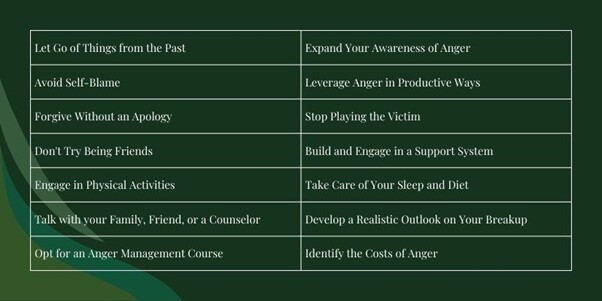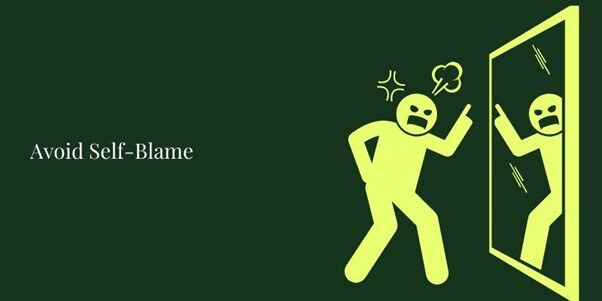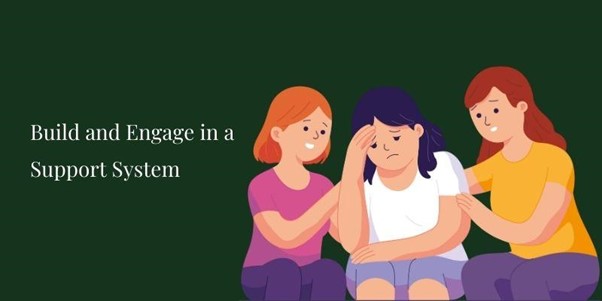14 Ways to Deal with Anger After a Breakup
Dealing with anger after a breakup can be one of the hardest emotional challenges.
Breakups often leave a trail of hurt, disappointment, and sometimes anger, which can feel overwhelming.
In the U.S., about 40-50% of marriages end in divorce, and countless non-married couples experience breakups as well.
According to studies, emotional recovery after a breakup can take anywhere from a few weeks to several months, depending on the relationship and its intensity.
Anger is a common reaction because it stems from feelings of betrayal, rejection, or frustration when expectations aren’t met.
Anger after a breakup can be reflected in various ways, such as frustration over wasted time, resentment toward the other person, or even self-blame.
While it’s a normal part of the healing process, it can be harmful if left unchecked. Dwelling on anger can lead to poor decisions and make moving on harder.
The key is to find healthy ways to deal with this emotion, allowing yourself to process it without letting it consume you.
This blog will explore 14 effective ways to manage and release anger after a breakup.
14 Best Ways to Manage Anger After a Breakup in 2024

Breakups are never easy, and the emotional aftermath can be overwhelming, especially when anger is involved.
While feeling angry is a natural reaction to the hurt, betrayal, or loss that often accompanies a breakup, managing these emotions is essential.
Holding onto anger can negatively impact your mental health, slow down the healing process, and even affect future relationships.
The good news is that in 2024, we have access to more resources, support systems, and techniques to help deal with breakup-related anger.
From professional therapy to self-care practices, there are numerous ways to constructively channel and release that anger.
Here are the 14 best strategies for managing anger after a breakup, offering practical advice and actionable steps to help you regain emotional balance and move forward.
1. Let Go of Things from the Past

Letting go of the past is often one of the hardest steps after a breakup, yet it’s one of the most important for managing anger.
Holding onto memories, unresolved conflicts, or your ex’s hurtful actions can fuel lingering anger and prevent emotional healing.
Letting go doesn’t mean forgetting the relationship entirely or dismissing your feelings. Instead, it means accepting what happened in the past and focusing on what lies ahead.
- Start by acknowledging the reality of the situation: the relationship has ended, and the past cannot be changed.
- Journaling can be a helpful tool for this, allowing you to write down your feelings and release them in a safe space.
- Another method is practicing mindfulness, which encourages living in the present moment rather than ruminating on past hurts.
- Meditation or breathing exercises can also help you calm your mind when memories or anger from the past resurface.
In addition to these practices, consciously distancing yourself from reminders of the past like avoiding old photos, texts, or visiting places that hold sentimental value, can help you emotionally detach and let go.
Forgiving yourself and your ex (even if they don’t deserve it) can also be freeing, as it removes your emotional burden.
Letting go allows you to stop reliving the past and open up space for healing, peace, and new beginnings.
2. Avoid Self-Blame

One of the most common reactions after a breakup is turning the anger inward and blaming yourself.
Thoughts like “What did I do wrong?” or “If only I had acted differently” can loop in your mind, fueling self-blame and deepening emotional pain.
While reflecting on a relationship is natural, blaming yourself for its end is not productive and can prevent you from moving forward.
Breakups happen for many reasons, and often it’s not one person’s fault alone, but a combination of factors.
Avoiding self-blame is crucial to managing anger and fostering self-compassion during this tough time.
- To avoid falling into the trap of self-blame, start by reminding yourself that relationships are complex, and it’s unlikely that one single action or event caused the breakup.
- Instead of focusing on what went wrong, view the relationship as a learning experience. Journaling can help with this process.
- Write down any feelings of guilt or self-blame, and then challenge them by noting the positive aspects of your relationship and the lessons you’ve learned.
- Talking to a trusted friend or therapist can also provide a more balanced perspective, helping you see that the breakup is not a reflection of your worth.
- Practice self-compassion by treating yourself as you would a friend going through a similar situation.
- Engage in activities that make you feel good about yourself and focus on self-care.
- Understand that blaming yourself will only deepen the anger and keep you stuck in the past.
By accepting that you’re human and relationships sometimes end despite your best efforts, you can let go of self-blame and begin to heal.
3. Forgive Without an Apology

Forgiving someone after a breakup, especially without receiving an apology, can be incredibly challenging. Yet, holding onto anger and resentment only hurts you in the long run.
Forgiveness doesn’t mean you’re excusing hurtful behavior or reconciling with your ex—it means you’re choosing to release the emotional burden of anger, allowing yourself to heal.
An apology may often never come, and waiting for one can keep you trapped in negative emotions. Forgiving without an apology is about taking control of your own healing process.
- To begin this process, acknowledge your feelings of hurt and anger. These emotions are valid, but holding onto them only extends your suffering.
- Start by writing a letter to your ex where you express all the anger and pain you feel. You don’t have to send this letter—it’s simply a way to release those emotions.
- Afterward, reflect on how holding onto this anger is impacting your life. Is it preventing you from moving forward? Is it making you feel stuck? Recognizing the negative impact of unresolved anger can motivate you to let go.
- Another step is to shift your perspective. Understand that your ex may never apologize, but that doesn’t mean you can’t move forward.
- Sometimes, people are unable or unwilling to see their wrongs, and waiting for validation from them will only delay your healing.
- Lastly, focus on yourself—redirect the energy you’re using to harbor anger into self-care, personal growth, and finding peace.
By forgiving without an apology, you free yourself from the emotional chains of the past and make room for happiness and growth in the future.
4. Don’t Try Being Friends
After a breakup, trying and maintaining a friendship with your ex is tempting, especially if the relationship has strong emotional ties.
While this idea might sound comforting, it can often lead to more emotional turmoil and prevent you from fully moving on.
Trying to be friends immediately after a breakup can blur boundaries and keep old feelings of hurt, anger, or jealousy alive.
It’s difficult to heal from a breakup if you’re still in constant contact with the person who caused those emotions.
- Give yourself and your ex time and space to process the breakup. This doesn’t mean you can never be friends, but letting the emotional dust settle first is essential.
- Start by setting clear boundaries. This could involve taking a break from communication, unfollowing them on social media, or avoiding places you used to go together.
- Use this period to focus on yourself and your emotional recovery.
- Being friends too soon can make it harder to let go of the romantic connection. It may even rekindle feelings that aren’t reciprocated, leading to more pain.
- If, after a significant amount of time, you feel emotionally stable and genuinely believe a platonic friendship is possible, then it can be revisited.
Forcing friendship right after a breakup often does more harm than good. Let yourself grieve, heal, and grow before attempting any kind of new relationship with your ex, if at all.
5. Engage in Physical Activities

Physical activity is one of the most effective ways to manage anger after a breakup. Exercise helps release endorphins, the body’s natural mood elevators, which can alleviate stress and frustration.
When you’re going through emotional turmoil, engaging in physical activity provides a healthy outlet for the negative energy that might otherwise manifest as anger or anxiety.
Instead of bottling up your emotions, channel them into something productive, like a workout routine or an outdoor activity.
- Start small by incorporating exercises that you enjoy into your daily routine. This could be as simple as walking briskly, cycling, or hitting the gym.
- Even 20-30 minutes of daily exercise can affect your mood and mental well-being.
- If you’re dealing with intense anger, try high-energy activities like kickboxing, martial arts, or high-intensity workout. These forms of exercise allow you to release pent-up anger in a controlled and healthy manner physically.
- Physical activity improves your overall physical health, boosts self-esteem, and distracts you from thinking about the breakup.
- Group activities, like yoga classes or team sports, can also provide a social outlet, helping you rebuild connections with others in a positive environment.
Regular physical activity post-breakup is a powerful way to regain control of your emotions and start moving forward.
6. Talk with your Family, Friend, or a Counselor

Opening up to a trusted family member, friend, or counselor can make a huge difference when dealing with anger after a breakup. Bottling up your emotions often intensifies anger, frustration, and sadness.
Sharing your thoughts and feelings with someone you trust allows you to express yourself in a safe space, gain new perspectives, and receive emotional support.
Family and friends can provide comfort, offer advice, and remind you that you’re not alone going through this difficult time.
- Identify someone in your support system whom you feel comfortable confiding in—someone who will listen without judgment and offer empathy.
- Start by setting aside time to talk, explaining your feelings, and sharing specific situations or thoughts causing anger. Sometimes, simply voicing these emotions out loud can lighten the burden.
- Friends and family may also help you reflect on the relationship more objectively, offering insights you might not have considered.
- If you feel that talking to loved ones isn’t enough, or if your anger is becoming overwhelming, consider speaking to a counselor or therapist.
A mental health professional can provide deeper guidance, teach coping strategies, and help you understand the root causes of your anger.
Couples Counseling can be particularly useful for long-term healing, ensuring that the anger from your breakup doesn’t carry over into future relationships or other aspects of your life.
7. Opt for an Anger Management Course
If you find that your anger after a breakup is difficult to control or is affecting your daily life, an anger management course could be a beneficial step.
These courses are designed to help individuals understand the root causes of their anger, develop coping mechanisms, and learn healthier ways to express emotions.
After a breakup, feelings of rejection, betrayal, or resentment can manifest as intense anger. An anger management course can give you the tools to manage these feelings before they escalate.
During the course, you’ll learn techniques such as deep breathing, mindfulness, and communication strategies that can help you manage your anger in the moment. You’ll also gain insights into your triggers and how to respond to them constructively.
Attending an anger management course doesn’t mean something is “wrong” with you—it’s a proactive step toward personal growth.
Teletherapy offered by Conflict Coaching & Consulting Inc can also help men and women equally as it provides anger management techniques. The process starts with anger management assessment so the results are considered to provide teletherapy specific to your needs.
Many people find that the skills learned in these courses help with anger related to breakups and improve their overall emotional regulation and relationships in general.
8. Expand Your Awareness of Anger
One of the most important steps in managing anger after a breakup is expanding your awareness of what anger truly is and how it manifests.
Often, we think of anger as an external reaction, such as yelling or physical outbursts, but anger can also be internalized and expressed as passive-aggressive behavior, withdrawal, or resentment.
Understanding how anger can show up allows you to better recognize when you’re feeling it and why. Awareness is the first step toward managing and redirecting those feelings in healthier ways.
- Pay close attention to how your body and mind react when you’re angry. Do you clench your jaw, raise your voice, or have racing thoughts? Keeping a journal can be helpful here.
- Each time you feel a surge of anger, write down what triggered it, how you physically felt, and how you responded. This practice helps you identify patterns in your anger and recognize triggers before they escalate.
- Educating yourself about anger—through books, online resources, or even anger management courses—can also deepen your understanding.
The more aware you become of your anger, the easier it is to manage it constructively. You can then take proactive steps to address the underlying issues rather than letting them fester and grow into larger problems.
9. Leverage Anger in Productive Ways

Anger is a powerful emotion; when harnessed correctly, it can fuel positive change and personal growth.
Instead of letting anger spiral into destructive behaviors after a breakup, consider how you can leverage that energy in productive ways.
When directed positively, anger can motivate you to take action, set new goals, and improve aspects of your life that need attention.
By reframing anger as a catalyst for change rather than a destructive force, you can use it to move forward instead of staying stuck in frustration.
- Identify what areas of your life could benefit from the extra energy anger provides. For example, if you’re angry about how the breakup ended, use that energy to focus on self-improvement. This could be anything from getting in shape to pursuing a new career goal or finally tackling a project you’ve been putting off.
- Engaging in physical activities, starting a creative project, or learning new skills are all excellent outlets for channeling anger constructively.
- Setting healthy boundaries and advocate for yourself. If you’ve realized through your anger that certain behaviors in the relationship were harmful, use that knowledge to set clear boundaries in future relationships.
The key is to focus on using anger as motivation to grow rather than letting it control or define you.
10. Stop Playing the Victim
After a breakup, it’s easy to fall into a mindset of victimhood, where you feel like everything bad has happened to you and there’s nothing you can do about it.
While feeling hurt and disappointed is natural, staying in a victim mentality can prevent you from healing and moving forward.
Playing the victim keeps you in helplessness, reinforcing anger and resentment. Instead of focusing on what was done to you, it’s essential to reclaim your power and take responsibility for your own emotional recovery.
To stop playing the victim, start by shifting your mindset.
- Acknowledge that while you can’t control what happened in the past, you can control how you respond moving forward. This isn’t about blaming yourself for the breakup—it’s about recognizing that you can shape your future.
- Practice reframing negative thoughts. When you think, “Why did this happen to me?” try reframing it as, “What can I learn from this experience?” This small shift in thinking can help you regain a sense of control.
- Another step is to focus on action. Victimhood often stems from feeling stuck or powerless, but by taking small steps toward self-care, setting new goals, and seeking support, you begin to regain control over your life.
- Surround yourself with positive influences that encourage growth rather than dwelling on the past.
Breaking free from a victim mentality is a powerful way to let go of anger and take charge of your healing process after a breakup.
11. Build and Engage in a Support System

Building and engaging in a support system is crucial when managing anger after a breakup. Going through a breakup can be isolating, and it’s easy to feel alone in your emotions.
A strong support system of friends, family, and possibly a therapist can provide the emotional safety you need.
Talking through your feelings with people who care about you allows you to express your anger in a healthy way rather than letting it boil over into destructive actions.
- Start by reaching out to trusted friends or family members who can offer a listening ear.
- Share your feelings of frustration and anger, and be open to their feedback and encouragement.
- Don’t hesitate to ask for help if you’re struggling, whether that’s through a phone call, a face-to-face conversation, or even texting.
- If your anger feels overwhelming, consider talking to a therapist or joining a support group where you can connect with others going through similar experiences. These safe spaces allow you to explore your emotions without fear of judgment.
- Be intentional about staying socially connected, even when withdrawing is easier. Isolation can magnify feelings of anger and sadness.
- Engage in social activities that allow you to rebuild your sense of community, whether going out with friends, attending events, or participating in hobbies.
A support system reminds you that you’re not alone and helps you process your emotions in a healthy, constructive way.
12. Take Care of Your Sleep and Diet

Taking care of your sleep and diet is often overlooked but plays a critical role in managing anger and emotional well-being after a breakup.
When your body is deprived of sleep or not getting proper nutrition, it becomes more difficult to control emotions, including anger.
Sleep deprivation, in particular, has been linked to increased irritability, stress, and emotional outbursts and PTSD in some cases, making it harder to stay calm when dealing with breakup-related emotions.
Similarly, poor eating habits can lead to mood swings, fatigue, and heightened emotional responses.
- Prioritize getting enough rest each night.
- Aim for 7-9 hours of quality sleep, and establish a bedtime routine that helps you wind down.
- Avoid screens and stimulating activities before bed, and try relaxation techniques like deep breathing or meditation to help you sleep more peacefully. Sleep is essential for regulating your mood and giving your mind the reset it needs to handle emotional stress.
- Focus on nutrient-rich foods that support your mental and physical health. Add plenty of fruits, vegetables, whole grains, and lean proteins to your meals.
- Stay hydrated and limit your intake of caffeine, alcohol, and processed foods, which can contribute to mood swings.
Taking care of your physical health is essential in managing your emotional health, as what you put into your body can directly impact your feelings.
By ensuring you’re well-rested and properly nourished, you’ll be better equipped to handle the emotions, including anger, that come with a breakup. A healthy body supports a healthy mind, helping you stay balanced and in control during difficult times.
13. Develop a Realistic Outlook on Your Breakup
After a breakup, it’s easy to get caught up in extremes—blaming yourself entirely or feeling like you’ll never recover.
Developing a realistic outlook on your breakup is essential for managing anger and moving forward.
While breakups can be painful, they are often necessary for personal growth and can offer valuable lessons.
Holding on to unrealistic expectations, like hoping for reconciliation or focusing only on the negative aspects, can fuel anger and keep you stuck in a cycle of emotional pain.
- Accept the breakup as a reality. This doesn’t mean ignoring your feelings but recognizing that the relationship has ended and focusing on what you can learn from it.
- Reflect on both the positives and negatives of the relationship, understanding that no relationship is perfect and both parties likely contributed to the end.
- Take note of what didn’t work and how to apply those lessons to future relationships. This shift in mindset helps you approach the situation more rationally rather than through the lens of anger.
- Surround yourself with supportive people who can offer objective advice and help you see the situation.
- It may also help to write down your thoughts in a journal or talk to a therapist who can guide you on how to frame your breakup.
Developing a realistic outlook allows you to process your emotions without letting anger dominate your healing process.
14. Identify the Costs of Anger
Understanding the costs of holding onto anger after a breakup can be a powerful motivator to let go of it.
Anger, if left unchecked, can have a wide range of negative effects, from straining personal relationships to affecting your mental and physical health.
Holding onto anger not only prolongs emotional pain but also prevents you from healing and moving forward.
Recognizing these costs can help you shift your focus toward healthier ways of processing your emotions.
Start by reflecting on how your anger is affecting you.
- Are you losing sleep?
- Do you feel constantly stressed or anxious?
- Is it preventing you from engaging in activities or relationships that bring you joy?
These are all significant costs of holding onto anger.
Additionally, anger can impact your ability to focus on personal or professional goals. For example, you may find that your productivity suffers because you’re preoccupied with thoughts of your ex or how the breakup played out.
To identify the costs clearly, make a list of the ways anger has impacted your daily life. This could include negative effects on your mood, interactions with others, or even physical well-being.
Once you recognize the toll anger takes, motivating yourself to manage and release it becomes easier.
By shifting your perspective to the harmful consequences of holding onto anger, you can prioritize finding healthier coping mechanisms and ultimately allow yourself to heal.
Frequently Asked Questions
How long does breakup anger last?
Breakup anger can last from a few weeks to several months, depending on the individual and the circumstances of the breakup.
Factors like the depth of the relationship, emotional attachment, and personal coping skills influence how long it takes to move past the anger.
Who moves on faster after a breakup?
Studies suggest that men tend to move on more quickly after a breakup, often seeking distractions, while women may process emotions more deeply before moving on.
What are the 5 stages of heartbreak?
The five stages of heartbreak mirror the stages of grief:
- Denial
- Anger
- Bargaining
- Depression
- Acceptance
These stages aren’t linear, and people may experience them in different orders or return to certain stages before reaching full emotional closure.
What is the anger stage of a breakup?
The anger stage of a breakup is when feelings of frustration, blame, or resentment surface. You may direct this anger at your ex-partner, yourself, or the situation.
It’s a way of processing the emotional pain and sense of injustice caused by the breakup.
Conclusion
Dealing with anger after a breakup is a challenging but necessary part of the healing process.
It’s natural to feel overwhelmed by emotions like frustration, sadness, or even resentment, but it’s essential to remember that anger is a temporary state that can be managed.
Learning to control your anger through healthy outlets allows you to channel those emotions productively rather than letting them consume you.
By understanding the root causes of your anger and addressing them head-on, you’ll be better equipped to navigate this difficult period.
It’s also important to surround yourself with a supportive network and, if needed, seek professional help to guide you through the process. Breakups may feel like the end but also open the door to personal growth and new beginnings.
Letting go of anger enables you to move forward with a clearer mind and an open heart, ready for healthier relationships in the future.
With time, patience, and self-care, the pain will pass, and you’ll become stronger on the other side.
By implementing the strategies in this blog, you can regain control of your emotions and be excited for the next chapter of your life.


3 Responses